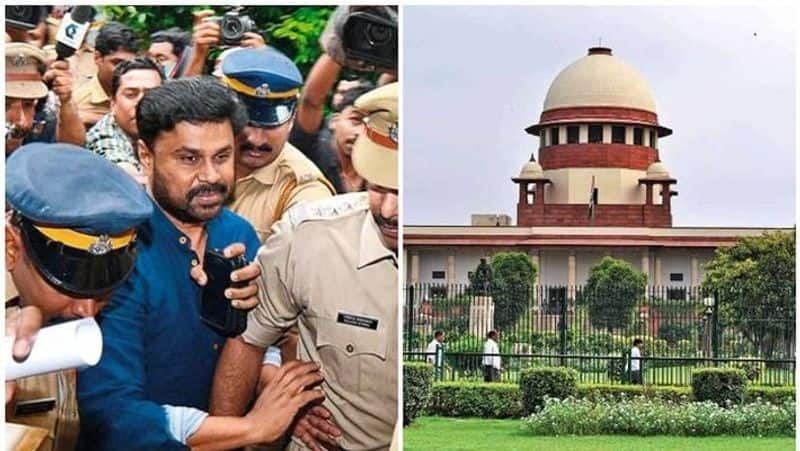The petition filed by Dileep, the eight accused in the case, seeking the copy of the memory card was heard by a bench led by justice AM Khanwilkar. The state government told the apex court that if the copy of the memory card is given to the accused, it will violate the privacy of the victim and will hamper the chances of her providing an independent statement.
Thiruvananthapuram: The Supreme Court on Thursday asked the Kerala government to clarify whether a memory card would be deemed as evidence or a document while considering a petition by Mollywood actor Dileep seeking a copy of the images in the memory card.
Depending on the answer that the Kerala government is expected to give by Friday, the court will decide whether Dileep can access the visuals. The petition filed by Dileep, the eighth accused in the case, seeking the copy of the memory card was heard by a bench led by justice AM Khanwilkar.
The Supreme Court also said if the memory card is evidence, then it cannot be supplied to the accused. If the memory card is a document, then the district court can decide whether the copy of the card can be given to Dileep. Meanwhile, the district court can also specify the conditions that must be followed while handing over the copy to Dileep.
The state government told the apex court that if the copy of the memory card is given to the accused, it will violate the privacy of the victim and will hamper the chances of her providing an independent statement.
The visuals of the attack were transferred from phone of the main accused in the case, Pulsar Suni. Dileep has always maintained that the visuals of the memory card will prove his innocence, and approached the court to obtain the visuals.
Dileep's plea to attain the copy of the memory card was primarily rejected by the Angamaly Magistrate court on February 7, 2018 and was even rejected by the Kerala high court in August 2018.
Following these rejections, Dileep moved the Supreme Court.
On February 17, 2017, a south Indian actor was abducted and assaulted by a group of men in a moving car.
Last Updated May 3, 2019, 11:15 AM IST











![Salman Khan sets stage on fire for Anant Ambani, Radhika Merchant pre-wedding festivities [WATCH] ATG](https://static-ai.asianetnews.com/images/01hr1hh8y86gvb4kbqgnyhc0w0/whatsapp-image-2024-03-03-at-12-24-37-pm_100x60xt.jpg)
![Pregnant Deepika Padukone dances with Ranveer Singh at Anant Ambani, Radhika Merchant pre-wedding bash [WATCH] ATG](https://static-ai.asianetnews.com/images/01hr1ffyd3nzqzgm6ba0k87vr8/whatsapp-image-2024-03-03-at-11-45-35-am_100x60xt.jpg)



